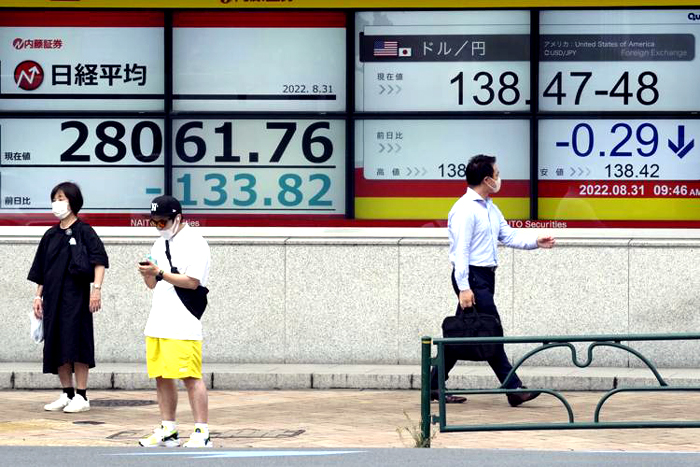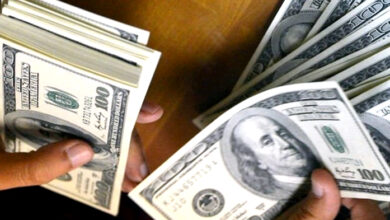Asian stocks drop at the start, following losses in the US after the inflation report.

All of the markets in Tokyo, Hong Kong, Shanghai, Seoul, Taipei, and Sydney started out lower.
Hong Kong (AFP) – Asian markets opened down on Wednesday, following losses in the US and Europe. Traders were worried about a long period of interest rate hikes after US inflation data came in higher than expected.
At the start of trading, the markets in Tokyo, Hong Kong, Shanghai, Seoul, Taipei, and Sydney all went down. This erased the gains made in the past few days because the market was expecting good things from the US Labor Department’s consumer price index (CPI) report.
On Tuesday, the US government released data showing that the annual increase in the CPI had slowed slightly in August, to 8.3 percent, but that prices continued to go up from month to month, going up by 0.1 percent.
The news shook the stock markets, where most people thought that the US’s year-over-year inflation would be around 8%, with prices going down from July to August.
Related: Even though China’s COVID worries are growing, Asian stocks keep going up.
For months, the US and other economies have been struggling with sky-high price increases. In June, the US inflation rate hit a 40-year high of 9.1%.
When the news came out, stocks on Wall Street fell hard. The Dow lost almost 1,300 points, and the S&P 500 fell 4.3 percent.
The news will kill any hopes that the US Federal Reserve will slow down its plan to raise interest rates to cool down the economy.
The Fed has already raised rates by 75 basis points twice in a row, and most people think it will raise rates by the same amount at its meeting next week.
But after the data released on Tuesday, some investors think the next Fed rate hike could be a full percentage point.
– “Scorchingly hot” inflation
The Fed will be worried by the fact that the “core” US CPI, which doesn’t include volatile prices like food and energy, went up by 6.3 percent from a year ago, which is more than the 5.9 percent increase seen in July and June.
Even though it was nice that gas prices were going down, the costs of food, housing, and medical care kept going up.
“Core inflation was very high, coming in at twice what was expected,” said Edward Moya, a senior market analyst at OANDA.
“It’s likely that the Fed will have to raise rates even faster, which is bad news for risky assets.”
Louis Navellier, a well-known investor, said that keeping interest rates high for a long time to control inflation could lead to a recession in the US.
“Stocks are taking it very hard as predictions grow that Fed Funds will go up and stay there longer,” he said in a note. “This is causing future earnings multiples to drop and fears of a recession to grow.”
The dollar rose against its major rivals in early Asian trade. Earlier this week, the dollar had fallen against its major rivals because people were expecting inflation to slow down.
Related: Asian stocks fall because of bad Chinese trade data and Fed jitters.
Once again, the euro fell below parity with the US dollar on Wednesday, when it hit $0.9970.
The rise of the dollar is partly due to the fact that the Fed has raised interest rates more quickly than central banks in other major economies.
In September, the European Central Bank raised its key rate by 75 basis points, and officials said that another increase of the same size could happen at the next meeting in October.
This year, prices have gone up all over the world because energy and food costs are so high.
This is due in large part to a lack of supplies after economies reopened after being closed during the coronavirus pandemic and after Russia invaded Ukraine.





